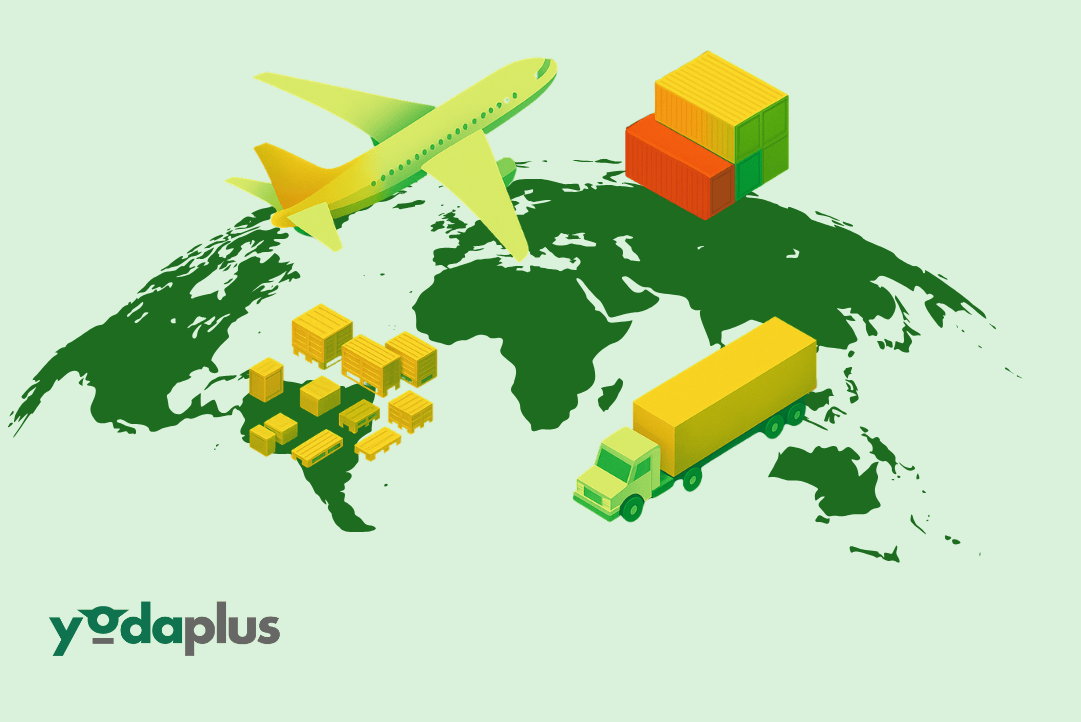
Evaluating Agent Decisions: Metrics for Autonomous Supply Chain Agents
August 12, 2025 By Yodaplus
Autonomous supply chain agents are transforming how businesses manage inventory, logistics, and retail operations. Powered by Artificial Intelligence (AI), machine learning, and agentic AI
frameworks, these agents make independent decisions across planning, procurement, and delivery.
But as their role grows, so does the need for robust evaluation metrics. Without proper performance tracking, even the smartest AI agents can drift away from organizational goals, causing inefficiencies, compliance issues, or unnecessary costs.
In supply chain and retail technology solutions, decision evaluation is not just a “good-to-have.” It is essential for supply chain optimization, inventory management solutions, and ensuring that every decision contributes to long-term operational efficiency.
Why Decision Evaluation Matters for Autonomous Supply Chain Agents
An autonomous agent in a supply chain technology setup can make thousands of micro-decisions every day, from rerouting shipments to adjusting stock reorder levels. Evaluating these decisions helps businesses:
- Measure accuracy: Are the decisions delivering the intended outcomes?
- Identify inefficiencies: Is the agent’s choice reducing delivery times or creating bottlenecks?
- Ensure compliance: Are decisions aligned with warehouse management system (WMS) guidelines, safety rules, and sustainability goals?
- Enable continuous learning: AI agents improve when feedback is looped back into their models.
Key Metrics for Evaluating Autonomous Supply Chain Agents
When assessing AI-driven decision-making, both operational and strategic metrics are important. Here are the core categories:
1. Accuracy and Predictive Reliability
- Forecast Accuracy: Measures how well the agent predicts demand and supply needs, a key part of inventory optimization in retail and supply chain.
- Order Fulfillment Accuracy: Tracks the percentage of orders delivered on time and in full.
2. Efficiency Metrics
- Cycle Time Reduction: Evaluates whether the agent’s decisions shorten lead times in logistics.
- Resource Utilization: Monitors how well warehouse space, vehicles, and labor are used.
3. Cost Impact
- Cost per Order Processed: Shows if AI-driven changes reduce operational costs.
- Inventory Holding Costs: Tracks how agent decisions impact warehouse storage expenses.
4. Compliance and Risk
- Regulatory Adherence: Ensures the agent complies with industry standards and trade regulations.
- Error and Incident Rate: Tracks mistakes that result in returns, delays, or safety risks.
5. Customer-Centric Outcomes
- Customer Satisfaction Scores: Monitors delivery speed, accuracy, and service quality.
- Return Rates: Evaluates whether order quality is improving.
The Process of Evaluating AI Agent Decisions in the Supply Chain
To effectively monitor and refine AI technology in supply chain and retail operations, the evaluation process should follow a structured loop:
- Data Collection
- Gather performance data from ERP systems, WMS, transport management systems, and customer feedback platforms.
- Use AI-powered data mining to detect trends across thousands of transactions.
- Decision Tracking
- Link each action taken by the autonomous agent to its source decision logic.
- In retail inventory systems, this could mean mapping a stock replenishment order to its demand forecast model.
- Metric Mapping
- Assign relevant KPIs such as delivery time, cost savings, and regulatory compliance to each decision category.
- Performance Scoring
- Use AI for data analysis to create a scoring system that reflects accuracy, efficiency, and compliance.
- Feedback Loop
- Feed the performance scores back into the agent’s machine learning models to refine future decision-making.
- Human Oversight
- Maintain expert review checkpoints where human supervisors verify critical decisions, especially in high-risk or high-value scenarios.
How AI Agents Improve Supply Chain and Retail Performance
When combined with supply chain technology and retail technology solutions, autonomous agents provide several advantages:
- Proactive Inventory Management: Agents forecast demand, reorder stock automatically, and prevent overstock or stockouts.
- Optimized Routing: Logistics agents select cost-effective and timely delivery routes using real-time traffic and weather data.
- Automated Vendor Coordination: Procurement agents manage supplier negotiations, ensuring timely material availability.
- Sustainability Tracking: AI agents monitor energy use and waste levels to meet green logistics goals.
For example, an inventory management system integrated with AI agents can analyze sales trends, compare them to market forecasts, and automatically place replenishment orders, all while balancing cost, space, and seasonal demand.
The Role of Artificial Intelligence in Decision Evaluation
Artificial Intelligence solutions add precision and scalability to the evaluation process:
- Machine Learning Models adapt scoring criteria based on evolving supply chain conditions.
- Natural Language Processing (NLP) can analyse supplier communications for compliance and efficiency.
- Generative AI can simulate “what-if” scenarios to predict the outcomes of potential decisions before execution.
- MCP (Model Context Protocol) allows smooth information exchange between agents, making evaluations more coordinated.
Best Practices for Implementing Evaluation Frameworks
- Start with High-Impact Decisions: Focus on areas where errors have the greatest cost or risk.
- Integrate Across Systems: Connect evaluation tools with ERP, WMS, and retail inventory systems for real-time insights.
- Automate Where Possible: Use AI applications for automated reporting to speed up decision reviews.
- Maintain Human Oversight for Exceptions: AI should handle routine tasks, while humans manage strategic anomalies.
Final Thoughts
Evaluating autonomous supply chain agents is not just about checking their work, it is about ensuring they make consistently smart, compliant, and cost-effective choices. By defining clear metrics, integrating Artificial Intelligence solutions, and using feedback loops, businesses can make their supply chains more agile, resilient, and competitive.
Yodaplus works on integrating advanced AI technology, retail technology solutions, and supply chain optimization tools to help organizations deploy and evaluate autonomous agents effectively. In a future where AI agents play a central role in global logistics, having the right evaluation framework will be the difference between staying ahead and falling behind.